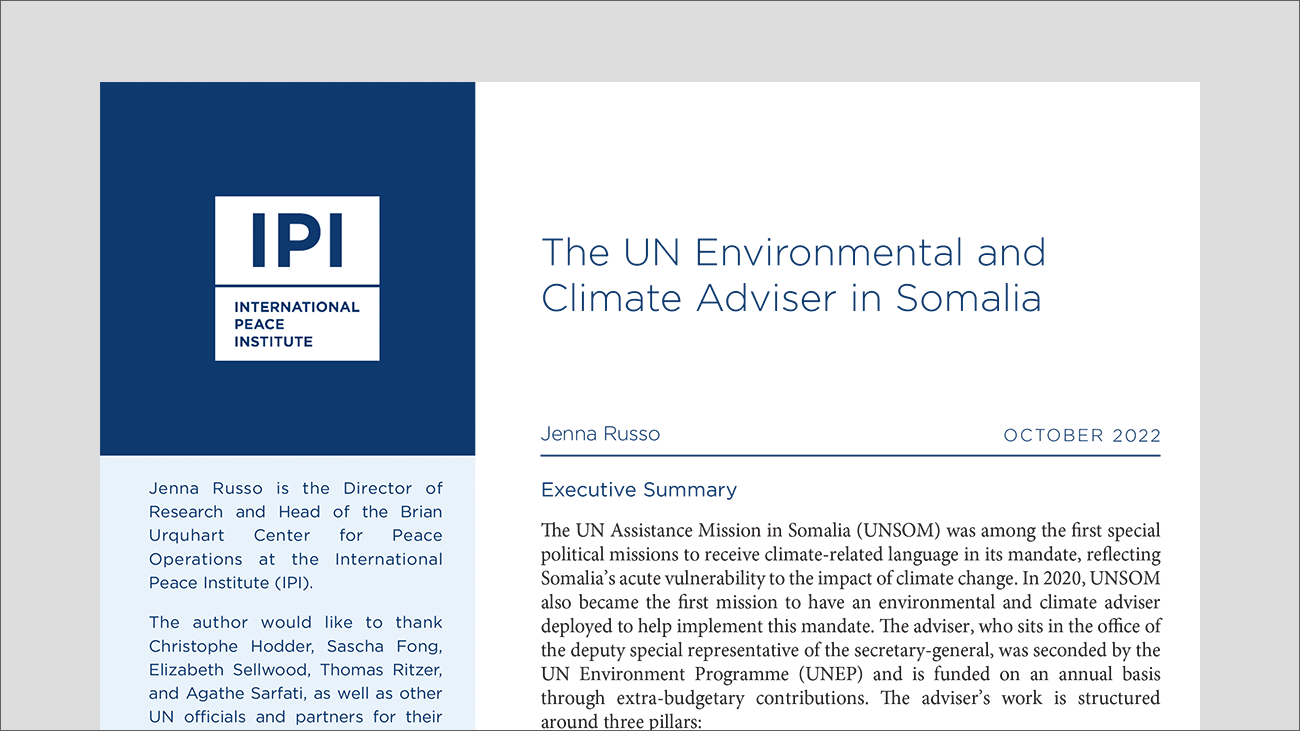
The UN Assistance Mission in Somalia (UNSOM) was among the first special political missions to receive climate-related language in its mandate, reflecting Somalia’s acute vulnerability to the impact of climate change. In 2020, UNSOM also became the first mission to have an environmental and climate adviser deployed to help implement this mandate. The adviser’s work is structured around three pillars:
- Mainstreaming the environment and climate throughout the mission’s mandated areas of work;
- Coordinating UN agencies, government actors, and NGOs working on climate across the humanitarian, development, and peacebuilding sectors; and
- Supporting the government in developing, funding, and coordinating its climate action plans and policies.
This issue brief reviews the role of the environmental and climate adviser in Somalia, including their areas of work, successes, challenges, and opportunities for replication in other mission settings. Strong buy-in from both mission leaders and national and regional counterparts has facilitated the adviser’s ability to help the mission implement its mandate relating to climate change, environmental degradation, and other ecological challenges. Furthermore, the adviser has successfully helped to coordinate climate-related work, incorporate strategic analyses into climate-related risk assessments and responses, and liaise with local actors. The adviser has also faced challenges, including the broad scope of work tasked to a single person and the unique set of skills required, as well as the political contention surrounding the concept of climate security.
The brief concludes by looking ahead to the growth of environmental and climate advisers in other UN missions and the importance of understanding and addressing interlinkages among climate, peace, and security as the impacts of climate change accelerate.







